This article needs additional citations for verification .(September 2014) (Learn how and when to remove this template message) |
Calixto Oyuela (1857 - June 12, 1935) was an Argentine poet and essayist.
This article needs additional citations for verification .(September 2014) (Learn how and when to remove this template message) |
Calixto Oyuela (1857 - June 12, 1935) was an Argentine poet and essayist.
Calixto was a lawyer by training. He worked for some years as a lawyer before turning to teaching and literary criticism. He then traveled across Europe, in the process earning the membership of the Argentine diplomatic corps. He also rapidly gained renown as a scholar. He became a Professor of Spanish Literature at the National College of Buenos Aires. He also held the position of director of the National Conservatory and also of the Spanish Academy of Language. He was appointed as the first president of the Academia Argentina de Letras and the Ateneo de Buenos Aires. During his lifetime Calixto was celebrated as one of Argentina's best scholars and a prominent figure in the country's cultural renewal. [1]



Oyuela remains one of Argentina's most celebrated poets. Works like “Art Canto” (1881), “Eros and Songs” (1891), “Songs of Autumn and Night” reflect his poetic skill. But Oyuela's lyrical, classical yet romantic verse is overshadowed by his vigorous prose. It was prose that brought Oyuela fame. Among his most famous works of prose are Literary Theory Elements of Argentina (1880), Notes On Spanish Literature, and Latin American Poetry Anthology, which won the National Prize for Literature in 1919.
Oyuela founded and was director of the Scientific Literary Magazine. He was at the helm of cultural and literary life in Argentina. He was a member of the Royal Spanish Academy. He also held the past of president of the Academy of Arts of Argentina. [2]

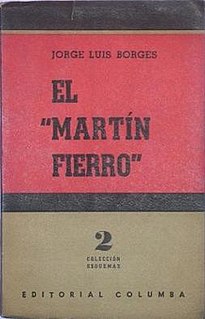
Borges on Martín Fierro concerns Argentinian Jorge Luis Borges's comments on José Hernández's nineteenth century poem Martín Fierro. Like most of his compatriots, Borges was a great admirer of this work, which he often characterized as the one clearly great work in Argentine literature. Because Martín Fierro has been widely considered the fountainhead or pinnacle of Argentine literature, Argentina's Don Quixote or Divine Comedy, and because Borges was certainly Argentina's greatest twentieth-century writer, Borges's 1953 book of essays about the poem and its critical and popular reception - El "Martín Fierro" - gives insight into Borges's identity as an Argentine.

Félix Rubén García Sarmiento, known as Rubén Darío, was a Nicaraguan poet who initiated the Spanish-American literary movement known as modernismo (modernism) that flourished at the end of the 19th century. Darío has had a great and lasting influence on 20th-century Spanish literature and journalism. He has been praised as the "Prince of Castilian Letters" and undisputed father of the modernismo literary movement.

Argentine literature, i.e. the set of literary works produced by writers who originated from Argentina, is one of the most prolific, relevant and influential in the whole Spanish speaking world, with renowned writers such as Jorge Luis Borges, Julio Cortázar, Leopoldo Lugones and Ernesto Sábato.
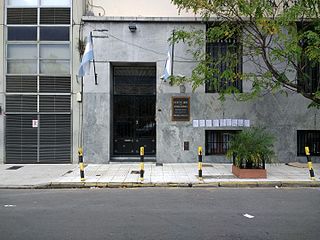
The Instituto Libre de Segunda Enseñanza is a high school that depends on the Universidad de Buenos Aires (UBA). It has approximately 1000 students, and it is located in Libertad 555 street, Capital Federal, Buenos Aires, Argentina. As it is affiliated with the University, it has an admission process that lasts one year and consists of an admission course, which involves multiple exams in Mathematics, History, Language and Geography. Almost all of its faculty teaches in the UBA, and physical education used to be performed at the Universidad de Buenos Aires campus, in Ciudad Universitaria, until 2016. One of its characteristics is that there is no need to do the CBC, because it offers its students the possibility of attending an extra 6th year in the career they have chosen.

Leopoldo Marechal was one of the most important Argentine writers of the twentieth century.

Manuel Mujica Láinez was an Argentine novelist, essayist and art critic.

Alejandro Rodríguez Álvarez, known as Alejandro Casona was a Spanish poet and playwright born in Besullo, Spain, a member of the Generation of '27. Casona received his bachelor's degree in Gijon and later studied at the University of Murcia. After Franco's rise in 1936, he was forced, like many Spanish intellectuals, to leave Spain. He lived in Buenos Aires, Argentina until April 1962, when he definitively returned to Spain.
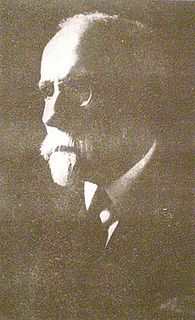
Paul-François Groussac was a French-born Argentine writer, literary critic, historian, and librarian.
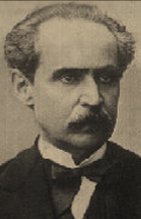
Vicente Fidel López was an Argentine historian, lawyer and politician. He was a son of writer and politician Vicente López y Planes.
Guillermo de Torre was a Spanish essayist, poet and literary critic, a Dadaist and member of the Generation of '27. He is also notable as the brother-in-law of the Argentine writer Jorge Luis Borges.

Miguel Cané was an Argentine writer, lawyer, academic, journalist, and politician.
The Academia Argentina de Letras is the academy in charge of studying and prescribing the use of the Spanish language in Argentina. Since its establishment, on August 13, 1931, it has maintained ties with the Royal Spanish Academy and the other Spanish-language academies that are members of the Association of Spanish Language Academies. Since 1999, it has officially been a correspondent academy of the Royal Spanish Academy.
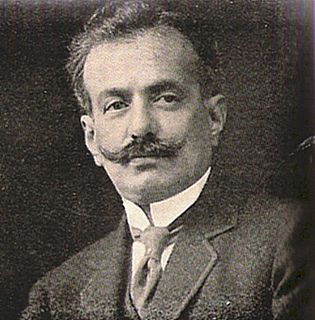
Ramón José Cárcano was an Argentine lawyer, historian and politician who served as Governor of Córdoba from 1913 to 1916, and from 1925 to 1928.
Raimundo Lida (1908–1979) was an Argentine philologist, philosopher of language, literary critic and essayist. He specialised in Romance philology, aesthetics, the literature of the Spanish Golden Age and modernist literature. He taught at Harvard University from 1953, where he was chair of the department of Romance Languages. The second of three children, his siblings were the hematologist Emilio Lida and María Rosa Lida de Malkiel, also a philologist.
Vartan Matiossian is a diasporan Armenian historian, translator and editor. He is currently Executive Director of the Eastern Prelacy of the Armenian Apostolic Church and book review editor for Armenian Review.
Leopoldo Ramos Giménez (1891–1988) was a Paraguayan intellectual, writer, anarchist, journalist, poet, playwright, politician and trade unionist. He was born on 14 October 1891 in Villarrica and died on 5 January 1988 in Asunción. He was one of the founders of the Socialist Revolutionary Party. He was the son of Norberta Ramos and Eleuterio Giménez, and was born in Villarrica, of el Espiritu Santo, in the Guairá Department. He married Ina Rolón with whom he had children.

Santiago Kovadloff is an Argentine essayist, poet, translator, anthologist of Portuguese literature and author of children's stories. He was born in Buenos Aires where he graduated in Philosophy at the University of Buenos Aires with a thesis on the thought of Martin Buber called "The hearer of God". Some of his works were translated into Hebrew, Portuguese, German, Italian and French and others have spread throughout Spain.
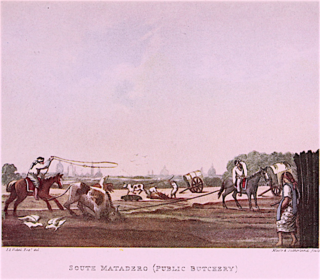
The Slaughter Yard, is a short story by the Argentine poet and essayist Esteban Echeverría (1805–1851). It was the first Argentine work of prose fiction. It is one of the most studied texts in Latin American literature. Written in exile and published posthumously in 1871, it is an attack on the brutality of the Federalist regime of Juan Manuel de Rosas and his parapolice thugs, the Mazorca.
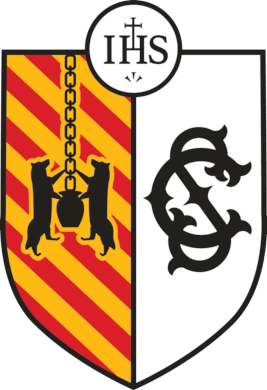
Colegio del Salvador is a Jesuit school in Buenos Aires, Argentina, founded by the Society of Jesus in 1868. It is an all-male school, pre-primary through high school.
Pedro César Dominici was a writer, playwright and Venezuelan diplomat.